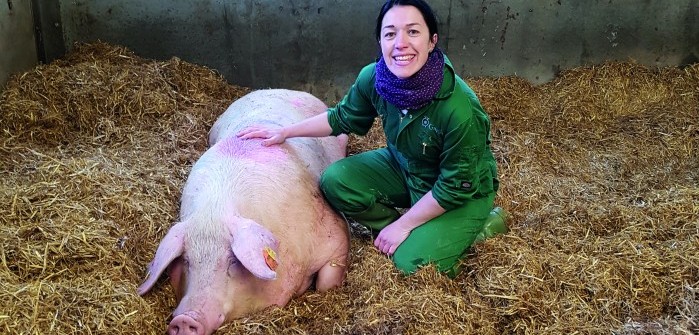Ciara O’Neills, one of the vet team at the Garth Pig Practice, considers what the pig sector can learn from the COVID-19 pandemic in terms of attitudes towards pig health
The winter months in Australia, June to August, normally see the peak of the flu season in people.
‘Normal’ doesn’t seem to apply this year as reported cases of flu have significantly decreased with 5884 recorded in March and only 504 in April and May – compared with 18,705 in April 2019 alone.
This is despite an increase in flu testing and enhanced awareness of respiratory illness. Pre-COVID 19, if we had seen such a decrease in cases, the temptation would be to rejoice that some new technology (a vaccine, a disinfectant) was available or perhaps a less virulent strain of flu was circulating.
In these COVID times, it is now indisputable that for disease prevention, behaviour is king. Flu has become a relatively minor occurrence in Australia in recent months because enough of the population changed their behaviours significantly and that brought benefits to the whole population.
Stay home if you’re ill, wash your hands, don’t mix populations – these have all been familiar refrains on pig farms for years, and now we’re seeing the impact of such behavioural changes on disease prevention on a massive scale in the human population.
Lessons learned from this pandemic make the case for re-thinking and re-focusing our pig efforts. The pig industry knows what measures are necessary to prevent the spread of disease both within and between farms. We know the potential routes for disease onto our farms; we have plans and lists and maps and technology – what we are currently lacking is a sea change in behaviours and attitudes to biosecurity within agriculture.
Small, repeated daily efforts to change all of our behaviours will pay dividends for the pig industry. Don’t aim for ‘mostly good’ biosecurity – aim for ‘always good’.
Bringing the dead bin to the farm perimeter for collection, asking visitors awkward questions about where they’ve been and when, washing and disinfecting your boots between rooms and changing needles between pigs are all things that require time and energy on busy days. But if practised consistently, they will insure against untold loss.
The other unfortunate lesson to be learned from this pandemic comes from the US – what your neighbour does matters. In our context, this might be a farm’s physical neighbours (hopefully devoid of pigs), the people visiting a unit, or the person working in the next barn.
But the actions of each individual on a unit will determine how successful that unit is at keeping disease out or containing it within.
If we wait for ASF to appear in the country or dysentery to appear on the farm to change our behaviours and to question our attitudes, then we will have waited too long.




